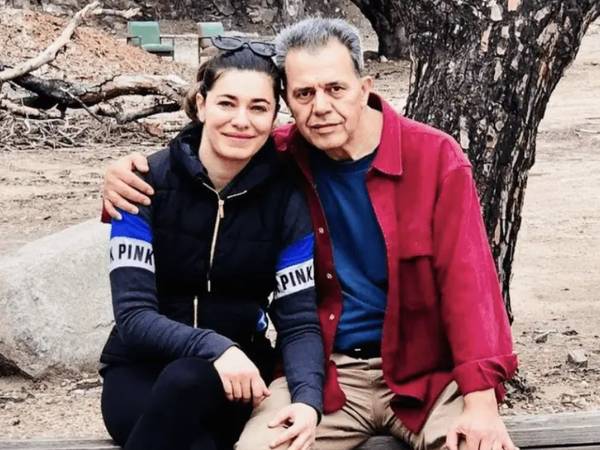Gazelle Sharmahd, daughter of Jamshid Sharmahd, a German citizen and US resident, is raising urgent questions about the reported death of her father, who had been detained in Iran since 2020.
In an interview with Iran International TV, she revealed that Iranian state media has yet to confirm his death through an official announcement, leaving her family without direct evidence of what happened to him.
The German and US governments, according to Gazelle, were informed of her father’s death by Iranian officials, yet neither has provided her family with proof of his execution.
“We don’t even know where my father’s body is,” she said, underscoring the absence of clarity on his fate. “Has anyone seen his body? We have seen no evidence. The German government simply accepted the word of the terrorist regime of the Islamic Republic when they said my father was dead.”
Jamshid Sharmahd, a 68-year-old software developer and California resident, was abducted by Iranian operatives during a visit to the United Arab Emirates in 2020 and forcibly brought to Iran. Accused of endangering national security, he was sentenced to death by an Iranian court in February 2023. According to his daughter, Iranian authorities subjected her father to prolonged solitary confinement, physical abuse, and denial of necessary medications, leading her to believe that the severe treatment was intended to end his life prematurely.
Sharmahd’s family first learned of his apparent death through a report from the Mizan News Agency, a media outlet linked to Iran’s judiciary, which stated that he had "met the consequence of his actions." The report avoided the term “execution,” with subsequent coverage only mentioning an “end” to his case—a notable departure from the standard judicial language typically used in Iranian media for executions.
Legal expert Moein Khazaeli, speaking to Iran International from Sweden, noted that the judiciary's choice of words implies a break from standard execution procedures in Iran. “Media affiliated with the Islamic Republic typically use terms like ‘was executed’ or ‘was hanged,’” Khazaeli added. “The phrase ‘met the consequence of his actions’ suggests that what occurred was not even a judicial and legal execution in accordance with the Islamic Republic’s own laws.”
This raises questions if he was killed under torture or that he was denied proper medical care.
Ghazaleh Sharmahd voiced her disappointment with the international response, stating that neither Germany nor the United States made effective efforts to secure her father’s release. After hearing of her father’s possible execution, she said both governments reached out but “had nothing meaningful to say.” She criticized the lack of urgency and questioned why her family has yet to receive any evidence confirming his death.
The German government announced on Thursday that it would close three consulates of the Islamic Republic in response to the execution of the dual citizen, which Germany’s foreign minister labeled an assassination.
A US State Department spokesperson told Iran International in an email that the US stands with Germany in condemning the execution and supports Germany's decision to shut down Tehran’s consulates.
Iran’s judiciary, known for its history of strict sentencing in cases related to national security, typically conveys high-profile executions with clear statements. The departure from this norm in Sharmahd’s case raises concerns among legal experts and human rights advocates about whether due process was observed.
